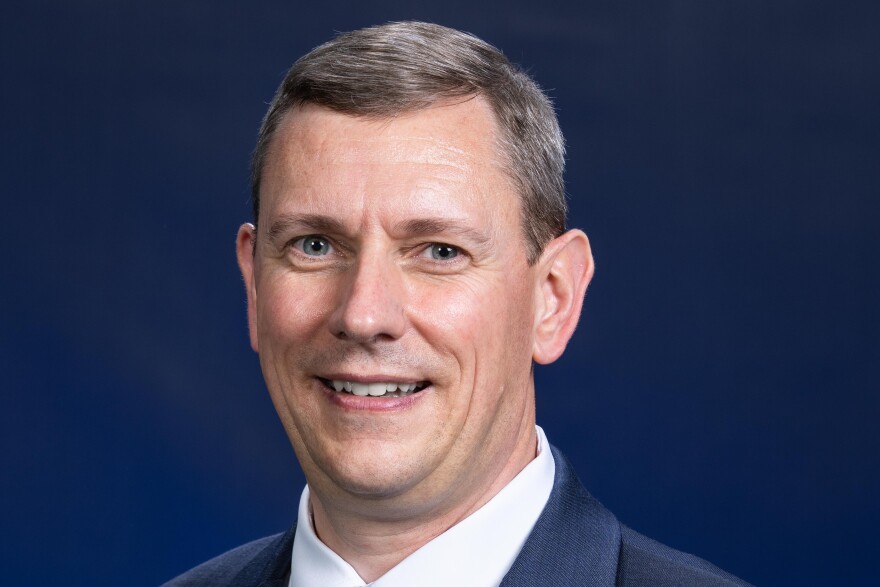Launching science and more to the moon

Through the Commercial Lunar Payload Services (CLPS) initiative, NASA is working with several American companies to deliver science and technology to the moon.
Commercial company Intuitive Machines launched a lunar lander, named Odysseus, on a SpaceX Falcon 9 rocket from Kennedy Space Center last Thursday, Feb. 15, and it is expected to reach the moon on Thursday, Feb. 22.
Jim Gregory, Dean of the College of Engineering at Embry Riddle Aeronautical University, said the CLPS initiative is lowering the cost to access space.
“You used to have to spend like $1 billion to get on one rocket launch. Now we're talking about - it's still a lot of money - but closer to $100 million. So that's within reach of small companies like Intuitive Machines.”
By lowering the cost for smaller companies, the initiative is also helping schools like Embry Riddle Aeronautical University have access to the lunar surface.
“The CEO of Intuitive Machines, who's a friend of Embry Riddle, came to us and said, ‘Hey, would you like a free ride to space?’” said Gregory. “He's been very generous to give us access, and that gives us an opportunity to participate with Intuitive Machines to do some really cool science and understand the lunar environment.”
Along with an array of science experiments, Odysseus is carrying a camera designed by Embry-Riddle Aeronautical University students and faculty, named EagleCam, which will take a selfie of the lander as it touches down on the moon.
Lunar Economy
Astrobotic’s Peregrine lander was supposed to be the first lunar lander mission through NASA’s CLPS initiative earlier this year, but a failure in the propulsion system after launching meant Peregrine couldn’t achieve a soft landing on the moon.
Despite the high costs and risks of companies investing in the moon, Gregory said it's a high reward.
“Companies are leveraging some investment from NASA. Intuitive Machines got a contract from NASA to do this mission, but that didn't fully fund it. So Intuitive Machines and other companies are getting investment from other paying customers to get their payloads delivered to the moon.”
The investment from NASA will trickle into the local economy, according to Gregory.
“These are creating new companies that never existed before. These companies are creating jobs that never existed before.”
Gregory said more innovation and new technologies being created in Central Florida will impact non-space related products that could help make life better down on Earth, like solar panels.
“Solar panels are still expensive and costly to manufacture. As we develop better solar panels for spacecraft, those innovations and technologies that are developed can then flow down and make manufacturing these solar panels cheaper and make more efficient panels that make it to where it's reasonable for somebody to put one on the roof of their home and lower their electric bill.”
Who stands to gain the most?
Although NASA and commercial space companies are benefiting from the CLPS initiative by getting their scientific instruments to the moon, Gregory said taxpayers are benefitting the most.
“There's so many benefits of understanding the world around us and the lunar system that helps us make life better here on Earth. Also, the jobs that come out of this are really benefiting Floridians in amazing ways where we can have good paying jobs that then influence the economy all around us.”
It’s an exciting gateway being developed in Florida, according to Gregory.
“As all of these missions go through Central Florida on their way to space, we are the key touch point for all of that. There's going to be a lot of economic development associated with that on the Space Coast and great ways that Floridians will see life being better here.”
Copyright 2024 WMFE. To see more, visit WMFE. 9(MDA4MzM1MjM1MDEzMTg5NTk0MzNmOTQ5MA004))

